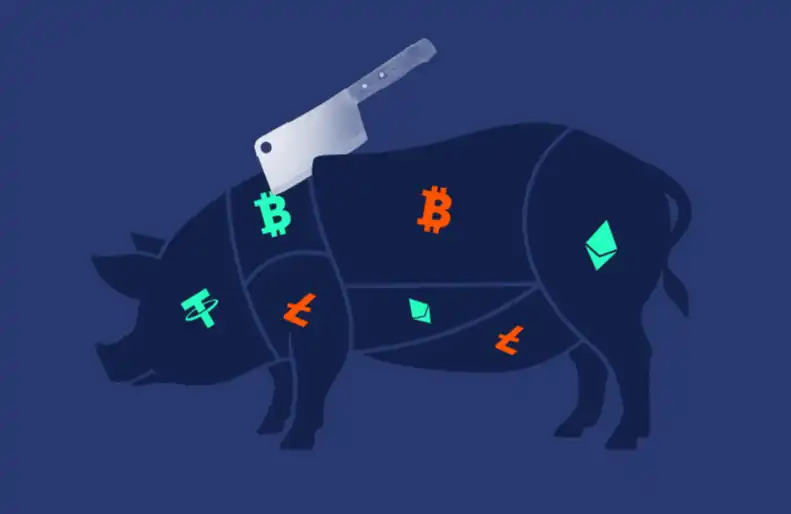$15 Billion Worth of Bitcoin Seized: The Collapse of Southeast Asia's "Rug Pull" Empire
Original Title: Feds Seize Record-Breaking $15 Billion in Bitcoin From Alleged Scam Empire
Original Source: Wired
Original Translation: Luffy, Foresight News
Foresight Note: On October 14, the U.S. Eastern District of New York Federal Court (EDNY) reported that the U.S. government is seeking to seize 127,000 bitcoins seized in the Cambodian Taikun Group operation, valued at over $14 billion at current prices. If this seizure is successfully carried out, the U.S. government will become the entity holding the largest amount of bitcoin. Below is a detailed analysis of this case:
Over the past five years, the criminals behind the Ponzi schemes that spanned the globe have stolen billions of dollars from around the world. Today, law enforcement agencies have launched one of the largest operations to date against this massive fraud industry, targeting operators of several modern-day slave scam compounds in Southeast Asia. In this region, hundreds of thousands of trafficking victims have been forced to engage in fraudulent activities for criminal groups.
This Tuesday, U.S. and UK officials conducted a joint operation to crack down on a major criminal organization in Cambodia and its leader, who is said to run multiple notorious scam centers in Cambodia. The U.S. Department of the Treasury's Office of Foreign Assets Control (OFAC) announced that it has imposed financial sanctions on 146 targets related to the newly designated Taikun Group transnational criminal organization, covering individuals and shell companies associated with this criminal empire. As part of a comprehensive operation involving the Federal Bureau of Investigation (FBI), the U.S. Department of Justice (DOJ) also seized nearly 130,000 bitcoins. As of the announcement, these bitcoins were valued at around $15 billion—making it the largest cryptocurrency seizure in the U.S. to date.
OFAC noted that the Taikun Group criminal entity consists of the Cambodian-based local company Taikun Holdings Group, its CEO and Chairman Chen Zhi, and associated individuals and business partners. The company publicly claims to be one of Cambodia's largest corporate groups, involved in real estate development and financial services. However, the DOJ's charges allege that Chen Zhi and other executives covertly transformed the Taikun Group into one of Asia's largest transnational criminal organizations, operating at least 10 scam compounds within Cambodia.
"As alleged, the defendants operated one of the largest investment fraud networks in history, fueling an already rampant illicit industry," said Joseph Nocella Jr., Assistant U.S. Attorney for the Eastern District of New York, in a statement. "The Taikun Group's investment fraud has resulted in billions of dollars in losses to victims worldwide, leading to immeasurable suffering." The DOJ revealed that Chen Zhi is currently at large and has not been arrested.
British Foreign Secretary Yvette Cooper stated in a declaration: "The masterminds behind these terrorist scam hubs are destroying the lives of vulnerable groups while buying properties in London to hide their ill-gotten gains." The UK has also imposed financial sanctions on Chen Zhi, the Prince Group, and other affiliated entities, and has frozen London commercial assets and properties allegedly linked to Chen Zhi, including a £12 million (approximately $16 million) mansion in North London and a £100 million (approximately $133 million) office building in London's financial district.
Reporters who emailed the media contact address listed on the "Prince Holding Group" official website received immediate bounce-backs.
"Today's coordinated action is the most significant blow to a Southeast Asian cybercrime network to date," said John Wojcik, Senior Threat Researcher focusing on Asian affairs at the cybersecurity company Infoblox. He had previously tracked scam hubs and Southeast Asian cybercrime at the United Nations Office on Drugs and Crime (UNODC). Wojcik believes that the group "is no ordinary criminal gang—it is one of the largest cybercrime and money laundering entities in the region and a leader in the criminal fintech and infrastructure space."
However, there is a yet-to-be-clarified twist in the case. The cryptocurrency tracking company Elliptic pointed out in a blog post on Tuesday that the seized Bitcoin by US law enforcement appears to correspond to funds stolen from a Chinese cryptocurrency mining firm named Lubian in 2020. The current indictment describes Lubian as part of Chen Zhi's money laundering network, which may be a criminal scheme to transfer scam proceeds to cryptocurrency mining hardware to generate clean new coins with no criminal record.
Who exactly stole these funds in 2020 or whether the theft actually occurred remains unclear. "It is possible that Chen Zhi staged the theft as part of his money laundering plan to obfuscate fund flows," said Tom Robinson, co-founder of Elliptic. "The second possibility is that the theft indeed took place, with the perpetrator possibly being the US government, but more likely someone else." Robinson suggested that US law enforcement may have subsequently traced the thief and somehow seized the funds from them.
Putting aside the cryptocurrency mining money laundering and the mysterious theft case, the indictment accuses Chen Zhi of being a key participant in the Chinese-language extortion ecosystem. For the past decade, organized criminal groups active in Southeast Asia have operated dozens of scam hubs in Myanmar, Laos, and Cambodia. These hubs, mostly controlled by Chinese criminal syndicates, lure employees from over 60 countries worldwide through false job ads. Upon arrival at the hubs, victims often have their passports confiscated and are then forced to engage in various types of online scams targeting global victims; refusal to comply may result in beatings or abuse. Besides human trafficking and scams, these scam hubs are also often associated with money laundering and online casinos.
The U.S. Department of Justice's indictment of Chen Zhi and 7 unnamed co-conspirators alleges that the Prince Group operates over 100 businesses in 30 countries and lists multiple potentially related subsidiary companies. The indictment also mentions that some local organizations, including a network in Brooklyn, New York, also worked for the Prince Group. The charges state that since 2015, Chen Zhi and company executives have established and operated scam zones throughout Cambodia, leveraging their political influence in multiple countries to protect their criminal empire.
The indictment states: "Chen Zhi was directly involved in managing the scam zones and retained records related to each zone, including files tracking scam profits, which specifically mention the term 'pig slaughter'," and is also alleged to have "books documenting bribery of public officials." It is claimed that a document held by Chen Zhi shows that two scam centers were equipped with 1,250 mobile phones used to control 76,000 social media accounts. The indictment also alleges that Chen Zhi possessed evidence showing that the Prince Group resorted to violent means against individuals trafficked to scam zones, with the document containing images of individuals bleeding and being assaulted.
The 127,271 bitcoins seized in this operation had a market value of over $15 billion at the time of confiscation. This marks the largest-ever asset seizure case in the history of the U.S. Department of Justice, setting a record for cryptocurrency or any other form of assets. Previously, the U.S. law enforcement's record was set in 2022 when 95,000 bitcoins (worth $3.6 billion) were seized, involving a Manhattan couple who admitted to stealing funds from the Bitfinex exchange; and back in 2020, the enforcement agencies reportedly seized $1 billion in bitcoins allegedly stolen by an anonymous hacker from the Silk Road darknet drug market. Additionally, in June of this year, the UK police confiscated 61,000 bitcoins (worth $6.7 billion) from a Chinese woman suspected of investment fraud, surpassing the previous U.S. record but still less than half of the amount seized in the Prince Group case.
"It is important to note that the significance of this extraordinary seizure lies not only in its scale but also in its symbolic meaning," said Ari Redbord, Global Head of Policy at the cryptocurrency tracking company TRM Labs, emphasizing that "this is just a small part of the illegal profits from scam zones." He added, "These are not isolated fraud cases but factory-scale operations that rely on forced labor, strengthen through cryptocurrency's speed and scale, and interconnected through a complex money laundering infrastructure spanning Cambodia, Myanmar, Laos, China, and other regions."
Redbord believes that this large-scale operation directly targets the operation and financial core of the scam zone ecosystem. In recent years, researchers tracking Southeast Asian scam zones have found that these zones have rapidly expanded and have invested their illicit gains in increasingly sophisticated scam activities. Over the past two years, scam zones have also begun to emerge outside Southeast Asia, with related operations discovered in the Middle East, Eastern Europe, Latin America, and West Africa.
「By targeting money mules, shell companies, banks, exchanges, and real estate — the financial architecture that supports these crimes — the U.S. and U.K. are dismantling the economic engines that fuel these crimes,」 Redbord said. 「This is what 21st-century threat finance action looks like — coordinated, data-driven, global.」
Welcome to join the official BlockBeats community:
Telegram Subscription Group: https://t.me/theblockbeats
Telegram Discussion Group: https://t.me/BlockBeats_App
Official Twitter Account: https://twitter.com/BlockBeatsAsia


 Forum
Forum Finance
Finance
 Specials
Specials
 On-chain Eco
On-chain Eco
 Entry
Entry
 Podcasts
Podcasts
 Activities
Activities
 OPRR
OPRR








